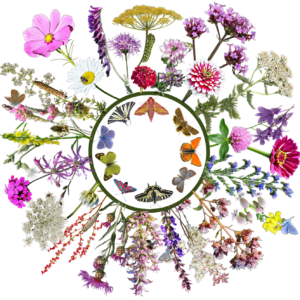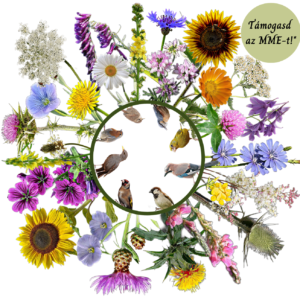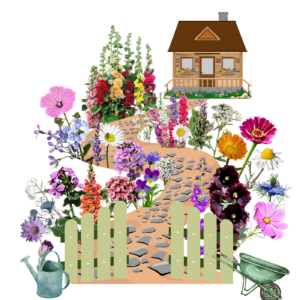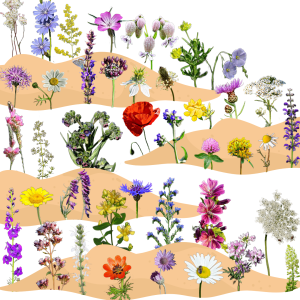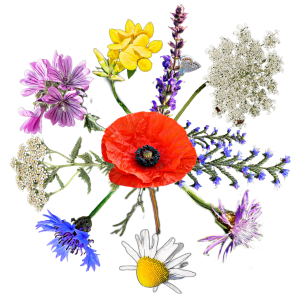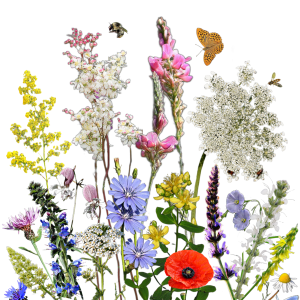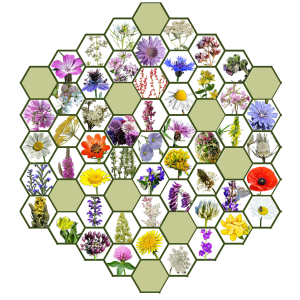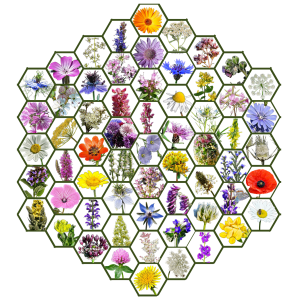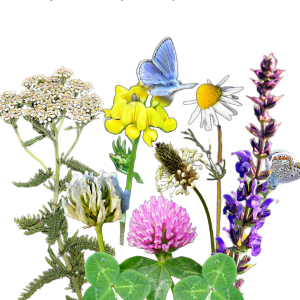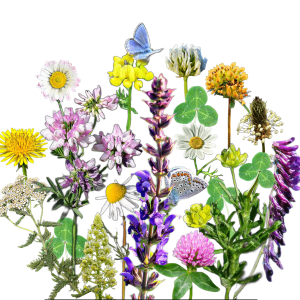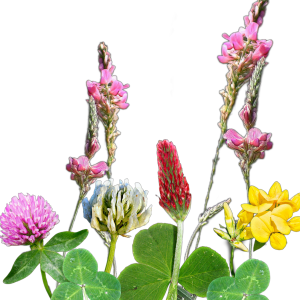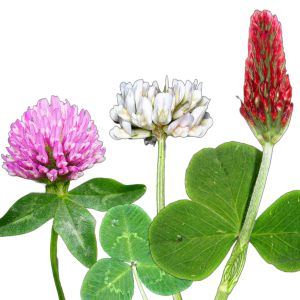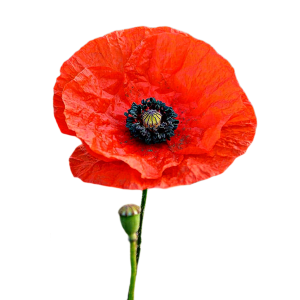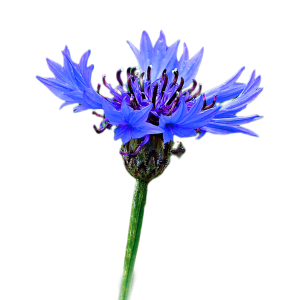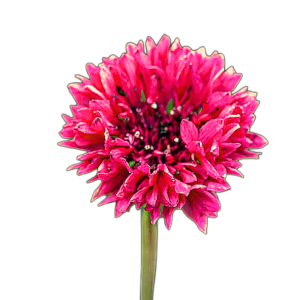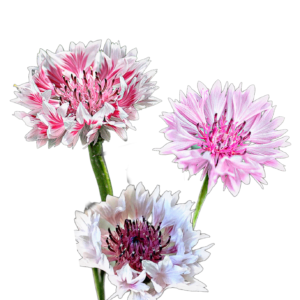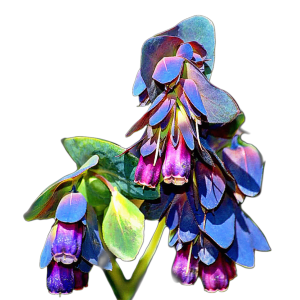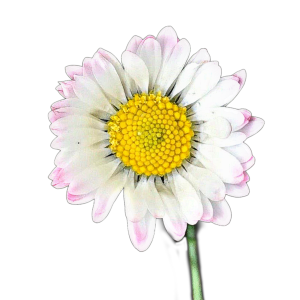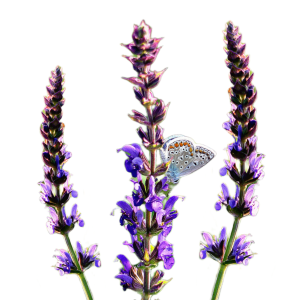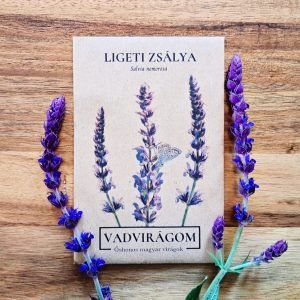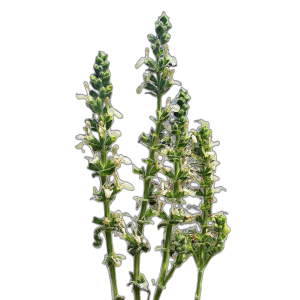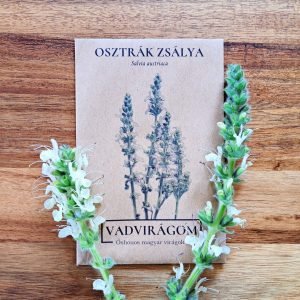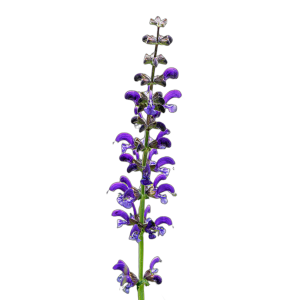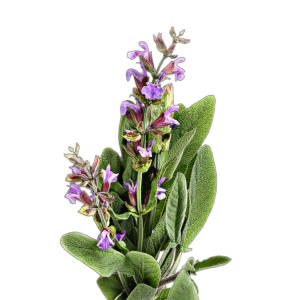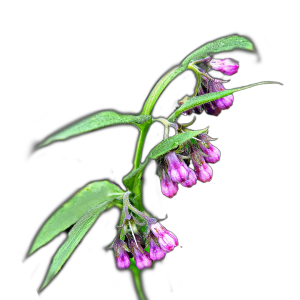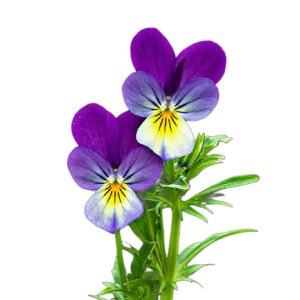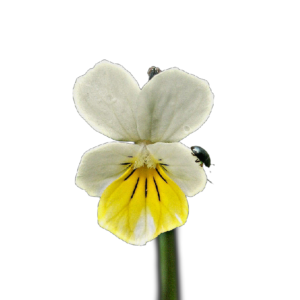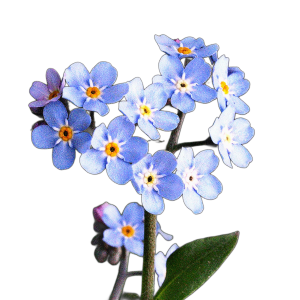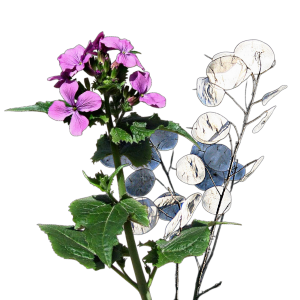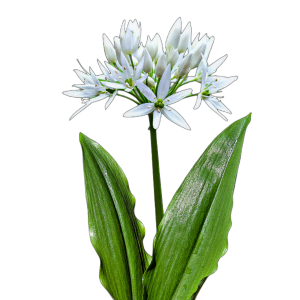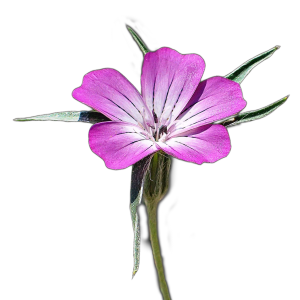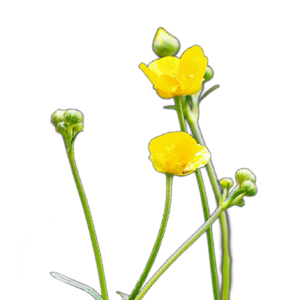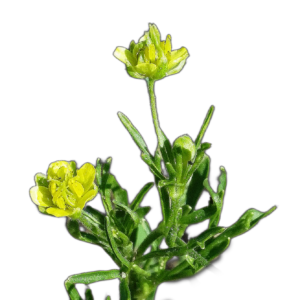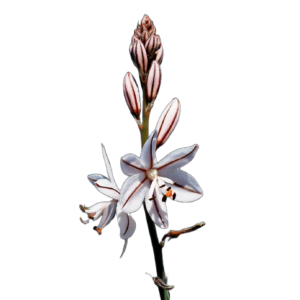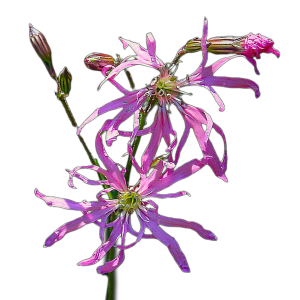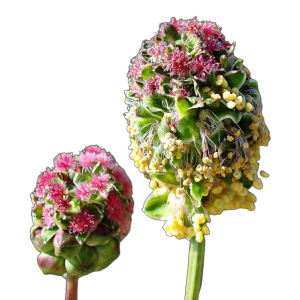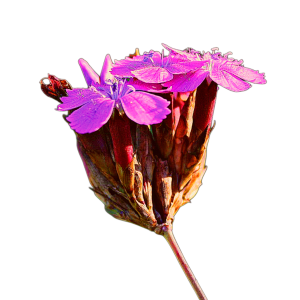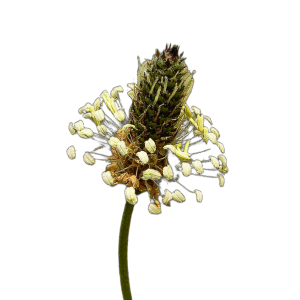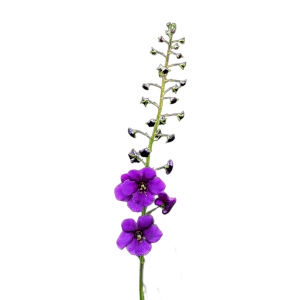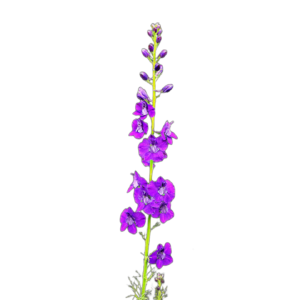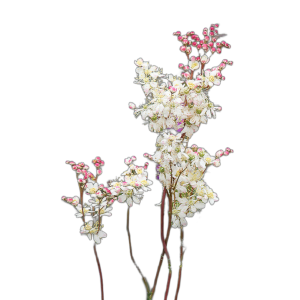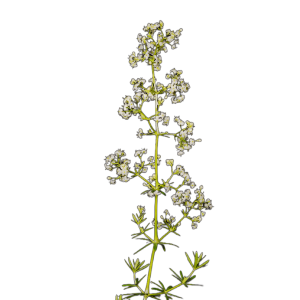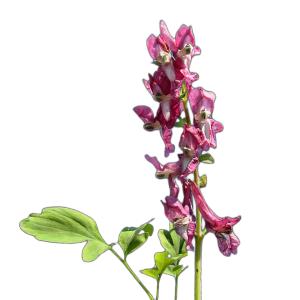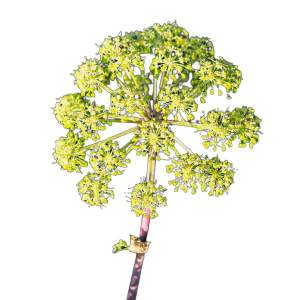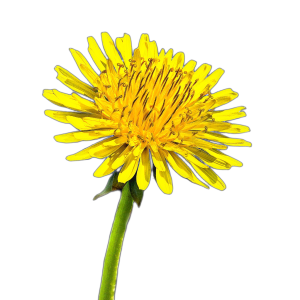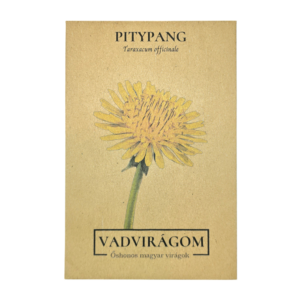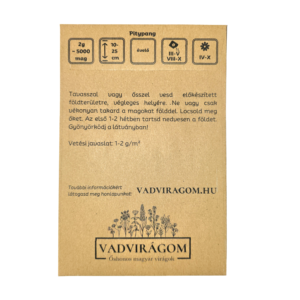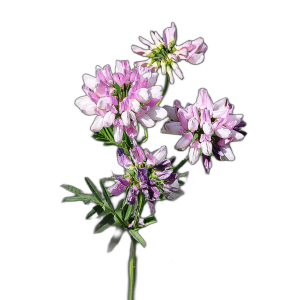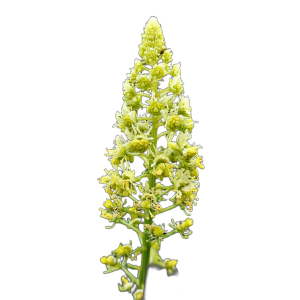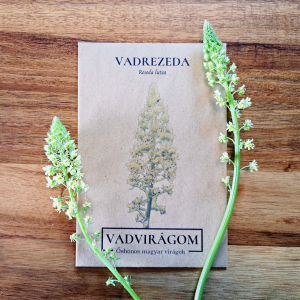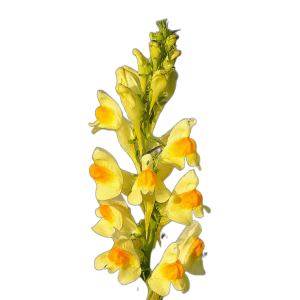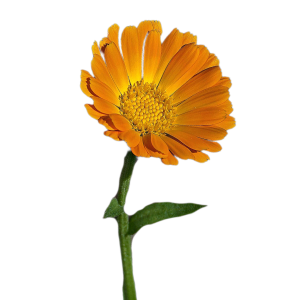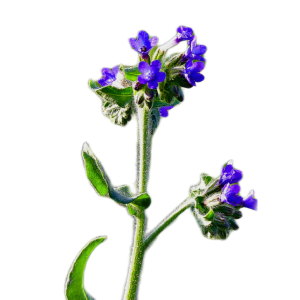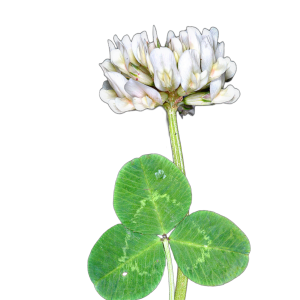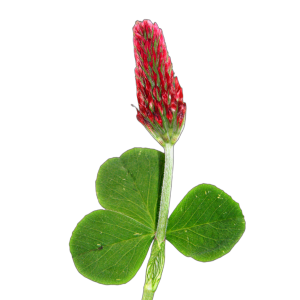"Purple Clover (Trifolium incarnatum) 10g, ~2650 seeds" has been added to your basket. View cart
-
-
Select options
There are several variations of this product. The variants can be selected on the product page
- Add to wishlistAdd to wishlist
- butterflies' favourite, butterfly attractant seed mix, seed mix
MAPMAKER 2.0 - caterpillar, hemp and moth seed mix (NEW!)
- 950 Ft - 8.000 Ft
- Butterfly Lure 2.0 is a seed mix for caterpillars, butterflies and sedges, the result of 1 year of research, which has resulted in a seed mix of the best nectar-producing and nutritious plant species. The majority of moths and sedges are very selective when they are caterpillars and have only a few or only 1 or 1 species of food plant: this is the plant on which the moth lays its eggs and the leaves of this plant are eaten by the caterpillars.
Add to wishlistAdd to wishlist -
Select options
There are several variations of this product. The variants can be selected on the product page
-
-
Select options
There are several variations of this product. The variants can be selected on the product page
- Add to wishlistAdd to wishlist
- bird attractant, seed mix
BIRD FOOD - seed mix for winter feeding of birds (prickly)
- 2.500 Ft - 13.000 Ft
- The idea for the Bird Lure seed mix came from the tengelicidae, as I watched tengelicidae come to a stray sunflower left outside a window for weeks to feast. Many species of birds, including blue tits, coal tits, cherry warblers and those with beaks suited to such things like this like to peck out the half-ripe/mature seeds from the open, seed-ripened flowers. In addition, many of our bird species are insect prey, which feed on pollen and...
Add to wishlistAdd to wishlist -
Select options
There are several variations of this product. The variants can be selected on the product page
-
-
Select options
There are several variations of this product. The variants can be selected on the product page
- Add to wishlistAdd to wishlist
- bird attractant, seed mix
BIRD FEEDER 2.0 - seed mix for winter feeding of birds (petting)
- 2.500 Ft - 13.000 Ft
- The idea for the Bird Lure seed mix came from the tengelicidae, as I watched tengelicidae come to a stray sunflower left outside a window for weeks to feast. Many species of birds, including blue tits, coal tits, cherry warblers and those with beaks suited to such things like this like to peck out the half-ripe/mature seeds from the open, seed-ripened flowers. In addition, many of our bird species are insect prey, which feed on pollen and...
Add to wishlistAdd to wishlist -
Select options
There are several variations of this product. The variants can be selected on the product page
-
-
Select options
There are several variations of this product. The variants can be selected on the product page
- Add to wishlistAdd to wishlist
- seed mix, nostalgic seed mix, cut flower
MAMA GARDEN - nostalgic seed mix (NEW!)
- 950 Ft - 5.000 Ft
- The Mama's Garden nostalgic seed mix is a true love project, reaching back to the roots where many of our passion for flowers began: our Mama's garden. With this seed mix I would like to thank and pay tribute to our grandmothers, for letting us learn from them about gardening practices, for introducing us to those nostalgic, now partly forgotten flowers and for laying the foundations for our passion for gardening. So I have chosen species that for me are typical of the old...
Add to wishlistAdd to wishlist -
Select options
There are several variations of this product. The variants can be selected on the product page
-
-
Select options
There are several variations of this product. The variants can be selected on the product page
- Add to wishlistAdd to wishlist
- butterflies' favourite, seed mix
BOKRÉTA - cut flower seed mix (NEW!)
- 950 Ft - 4.000 Ft
- The Bokréta cut flower seed mix is designed for flower and bouquet lovers. It's also a perfect gift for women's day or mother's day :) For the price of half a bunch, we will have a lot of bunches of flowers, not only in the year of sowing, but also in the years to come. The Bokréta seed mix is a mixture of 25 species of annual, biennial and perennial flowers, with a predominance of...
Add to wishlistAdd to wishlist -
Select options
There are several variations of this product. The variants can be selected on the product page
-
-
Select options
There are several variations of this product. The variants can be selected on the product page
- Add to wishlistAdd to wishlist
- 40 native Hungarian wild flowers for sandy soil, seed mix
BUCKALAKO seed mix
- 950 Ft - 16.000 Ft
- By popular demand, the wildflower meadow or beehive seed mix for sandy soil is ready! Buckalako seed mix contains 40 native Hungarian species that are drought tolerant and thrive in sandy soils. During the germination period it is important to keep the area moist: in autumn and spring for autumn sowing and in spring for spring sowing. Once the seedlings have germinated, they require no or very minimal watering (of course, months of drought...
Add to wishlistAdd to wishlist -
Select options
There are several variations of this product. The variants can be selected on the product page
-
-
Select options
There are several variations of this product. The variants can be selected on the product page
- Add to wishlistAdd to wishlist
- 10 native Hungarian wildflowers, seed mix
BEE 2.0 - Bee-feeding seed mix
- 900 Ft - 13.000 Ft
- Make your garden wild with this annual herbaceous seed mix of 10 native Hungarian species and welcome beneficial pollinators to your garden! This mix is a taster into the world of bee-keepers: we have selected 10 species that are pollinator favourites and will make beautiful ornaments to your garden with their long flowering. It includes annual, biennial and perennial flowers. Features: life cycle: annual, biennial, perennial flowering time: may-october size:...
Add to wishlistAdd to wishlist -
Select options
There are several variations of this product. The variants can be selected on the product page
-
-
Select options
There are several variations of this product. The variants can be selected on the product page
- Add to wishlistAdd to wishlist
- 20 native Hungarian wild flowers, seed mix
POLLENANYO 2.0 - beekeeping seed mix
- 900 Ft - 14.500 Ft
- One of the smaller members of the 10-60 species bee-feeding mix range is the pollinator-friendly Pollen Mother seed mix. Go wild with this seed mix and welcome beneficial pollinators to your garden! The more species a mix contains, the more native pollinator species it supports, Pollenanyó pollinator-friendly seed mix contains the best 20 native Hungarian wildflowers for you and your pollinators. And they are beautiful too :) Features:...
Add to wishlistAdd to wishlist -
Select options
There are several variations of this product. The variants can be selected on the product page
-
-
Select options
There are several variations of this product. The variants can be selected on the product page
- Add to wishlistAdd to wishlist
- 30 native Hungarian wild flowers, seed mix
BEPORZÓNA 3.0 - beekeeping seed mix
- 900 Ft - 16.000 Ft
- One of the middle members of the 10-60 species blend series, Beporzóna 3.0 is a seed blend of 30 indigenous Hungarian beekeepers. Wild your garden with this seed mix and welcome beneficial pollinators to your garden! The more species a mix contains, the more native pollinator species it supports. This mix has been developed with the above in mind, and we have also tried to select species that many specialist...
Add to wishlistAdd to wishlist -
Select options
There are several variations of this product. The variants can be selected on the product page
-
-
Select options
There are several variations of this product. The variants can be selected on the product page
- Add to wishlistAdd to wishlist
- 40 Hungarian and European wild flowers, seed mix
NEK-TÁR 3.0 - beekeeping seed mix
- 950 Ft - 17.500 Ft
- Make your garden wild with this annual-biennial-annual-evergreen bee-feeding seed mix of 40 species of Hungarian and European wildflowers and welcome beneficial pollinators to your garden! In addition to the Beporzone of 30 native wildflower species, this mix also includes some great pollinator-attracting Mediterranean wildflowers such as borage, marigold, garden ladybird and anise. It also contains several annual European wildflower species,...
Add to wishlistAdd to wishlist -
Select options
There are several variations of this product. The variants can be selected on the product page
-
-
Select options
There are several variations of this product. The variants can be selected on the product page
- Add to wishlistAdd to wishlist
- 50 species of native wild flowers, seed mix
BEES NO? - beekeeping seed mix
- 950 Ft - 19.000 Ft
- One of the larger members of the 10-60 species beekeeping mixture series, Méh ne? is a native Hungarian beekeeping seed mixture of 50 species (the largest native Hungarian member of the series). Wild your garden with this seed mix and welcome beneficial pollinators to your garden! The more species a mix contains, the more native pollinator species it supports. This blend has been developed with the above in mind,...
Add to wishlistAdd to wishlist -
Select options
There are several variations of this product. The variants can be selected on the product page
-
-
Select options
There are several variations of this product. The variants can be selected on the product page
- Add to wishlistAdd to wishlist
- 60 native European wild flowers, seed mix
ZÜMMÖGDE - beekeeping seed mix
- 950 Ft - 20.500 Ft
- The largest member of the 10-60 species beekeeping seed mixture series, Zümmögde, is a native Hungarian beekeeping seed mixture of 60 species (the largest member of the series). Wild your garden with this seed mix and welcome beneficial pollinators to your garden! The more species a mix contains, the more native pollinator species it supports. This mix has been developed with the above in mind, and we have tried to include...
Add to wishlistAdd to wishlist -
Select options
There are several variations of this product. The variants can be selected on the product page
-
-
Select options
There are several variations of this product. The variants can be selected on the product page
- Add to wishlistAdd to wishlist
- can be sown in grass, seed mix, beekeeping, native grassland, native
FRUITFUL FURRY seed mix
- 2.500 Ft - 7.500 Ft
- Want a beautiful, colourful and thriving lawn? With a mixture of 7 native wildflowers, the Flowering Native Lawn is guaranteed to be a hit with pollinators: the catkin, sage and hornwort are very popular with butterflies, while the white testicle provides food for short-tongued pollinators such as the house bee and the red testicle for long-tongued bees, including bumblebees. Like all butterfly...
Add to wishlistAdd to wishlist -
Select options
There are several variations of this product. The variants can be selected on the product page
-
-
Select options
There are several variations of this product. The variants can be selected on the product page
- Add to wishlistAdd to wishlist
- can be sown in grass, seed mix, beekeeping, native grassland, native
FERTILIZED FERTILIZED EXTRA seed mix
- 3.500 Ft - 10.000 Ft
- Want a beautiful, colourful and thriving lawn? After the highly successful Flowering Ancestral Grass with 7 native wildflower species, its bigger brother, the Flowering Ancestral Grass Extra Seed Mix with 15 species of native Hungarian seeds, is now available. This is a guaranteed success with pollinators: catkin, sage, spotted knapweed, rabbit's foot, hairy vetch and hornwort are very popular with butterflies,...
Add to wishlistAdd to wishlist -
Select options
There are several variations of this product. The variants can be selected on the product page
-
-
Select options
There are several variations of this product. The variants can be selected on the product page
- Add to wishlistAdd to wishlist
- can be sown between grass, seed mix, green manure
NITRO seed mix
- 1.750 Ft
- Want to improve soil quality naturally while benefiting pollinators? That's exactly what our 5-species green manure seed mix is for! Each species enriches the soil with nitrogen, increasing future yields. Forget fertilizers and use an ecologically sustainable solution while supporting pollinators. Characteristics: life cycle: annual, perennial flowering time: may-october size: 10-60 cm soil: dry, average growing conditions: sunny pollination factor: 9/10...
Add to wishlistAdd to wishlist -
Select options
There are several variations of this product. The variants can be selected on the product page
-
-
Select options
There are several variations of this product. The variants can be selected on the product page
- Add to wishlistAdd to wishlist
- may be sown in grass, seed mix, permanent grassland
TRIUMVIRÁGUS seed mix
- 1.750 Ft - 2.500 Ft
- Want a beautiful, colourful and thriving lawn? With this mix, success is guaranteed, even for pollinators: white clover feeds short-tongued pollinators such as house bees, while red clover and purple clover feed long-tongued pollinators such as bumblebees. Like all butterfly plants, testes fix nitrogen from the air and enrich the soil with it. This...
Add to wishlistAdd to wishlist -
Select options
There are several variations of this product. The variants can be selected on the product page
-
-
Add to basket
- Add to wishlistAdd to wishlist
- also for window box, annual, bee-keeper, native
Poppy (Papaver rhoeas) 1g, ~9000 seeds
- 875 Ft
- Who should be introduced to the most iconic wildflower, the reddish pearl of the wheat fields? Fortunately, wildflowers, including poppies (Papaver rhoeas), are making a comeback in gardens these days and are slowly losing their weed status, as their early flowering makes them a very important food source for many of our solitary bees. Properties: other names: poppies, stinking poppies, poppies, gooseberries, dandelion flowers, blood poppies, wild poppies Latin name: Papaver rhoeas family...
Add to wishlistAdd to wishlist -
Add to basket
-
-
Add to basket
- Add to wishlistAdd to wishlist
- also for window box, annual, bee-keeper, native
Poppy colour mix (Papaver rhoeas "Shirley Single Mix") 1g, ~9000 seeds
- 875 Ft
- Who should be introduced to the most iconic wildflower, the reddish pearl of the wheat fields? Fortunately, wildflowers, including poppies (Papaver rhoeas), are making a comeback in gardens these days and are slowly losing their weed status, as their early flowering makes them a very important food source for many of our solitary bees. This mixed poppy colour mix consists mainly of pink flowers, but other colours may also be available. It has a really light, soft and graceful look...
Add to wishlistAdd to wishlist -
Add to basket
-
-
Add to basket
- Add to wishlistAdd to wishlist
- also for window box, annual, bee-keeper, native
Cornflower (Centaurea cyanus "wild") 2g, ~420 seeds
- 875 Ft
- The cornflower (Centaurea cyanus) is one of our best known and most loved wild flowers, along with the poppy. Loved by pollinators, it flowers for a relatively long time in the garden. It is a medicinal herb, its flowers are edible, it used to be used to make dye, but it is also excellent for tea, which also gives it a beautiful colour. Early spring sowing with early flowering is an important time for pollinators, but it can also be sown in the autumn, in which case it will have bushier growth in spring/early summer. This...
Add to wishlistAdd to wishlist -
Add to basket
-
-
Add to basket
- Add to wishlistAdd to wishlist
- also for window box, annual, bee-keeper, native
Cornflower - pink (Centaurea cyanus "Red Ball") 1g, ~220 seeds
- 875 Ft
- The cornflower (Centaurea cyanus) is one of our best known and most loved wild flowers, along with the poppy. Loved by pollinators, it flowers for a relatively long time in the garden. It is a medicinal herb, its flowers are edible, it used to be used to make dye, but it is also excellent for tea, which also gives it a beautiful colour. Early spring sowing with early flowering is an important time for pollinators, but it can also be sown in the autumn, in which case it will have bushier growth in spring/early summer. This...
Add to wishlistAdd to wishlist -
Add to basket
-
-
Add to basket
- Add to wishlistAdd to wishlist
- also for window box, annual, bee-keeper, native
Cornflower - pink colour mix (Centaurea cyanus "Classic romantic") 1g, ~220 seeds
- 875 Ft
- The cornflower (Centaurea cyanus) is one of our best known and most loved wild flowers, along with the poppy. Loved by pollinators, it flowers for a relatively long time in the garden. It is a medicinal herb, its flowers are edible, it used to be used to make dye, but it is also excellent for tea, which also gives it a beautiful colour. Early spring sowing with early flowering is an important time for pollinators, but it can also be sown in the autumn, in which case it will have bushier growth in spring/early summer. This...
Add to wishlistAdd to wishlist -
Add to basket
-
-
Add to basket
- Add to wishlistAdd to wishlist
- 10/10 pollinator factor, also for window box, annual, bee-feeder
Lily of the valley (Cerinthe major "Purpurascens) 1g, ~20 seeds
- 875 Ft
- Cerinthe major is a native European flower, the cultivated form of which is this purple, "Purpurascens" colour variation. We also have the wild freckle-leaved Cerinthe minor, which has very interestingly mottled leaves, so you can recognise it from a distance. A close relative of this native species is this European annual species, but while the Hungarian species has yellow flowers, the 'Purpurascens' species...
Add to wishlistAdd to wishlist -
Add to basket
-
-
Add to basket
- Add to wishlistAdd to wishlist
- perennial, herb, bee-keeper, native
Daisy (Bellis perennis) 0,25g, ~1800 seeds
- 875 Ft
- I think no one needs to be introduced to my favourite creator of flower lawns. The wild form of the daisy (Bellis perennis) is our native wildflower, which does very well in grass and lawns. It is best sown with grass or in seed mixtures when mowing, but do not sow it amongst your existing grass: it is best sown as seedlings, which will germinate very well over time when planted amongst the grass. Its attractiveness as a pollinator is incredible...
Add to wishlistAdd to wishlist -
Add to basket
-
-
Add to basket
- Add to wishlistAdd to wishlist
- 10/10 pollinator, perennial, butterfly favourite, bee-feeder, native
Ligeti sage (Salvia nemorosa) 1g, ~925 seeds
- 875 Ft
- Lime sage (Salvia nemorosa) is one of our most beautiful wild flowers, and its cultivars can be found in many garden shops. No garden should be without it, it is a great favourite with pollinators. The various buttercups are particularly fond of it (see photo), but it is also a great favourite of bumblebees. Lime sage is less well known for its medicinal properties, but like medicinal sage it can be used for its antiseptic properties, or as a herb (although it is also a...
Add to wishlistAdd to wishlist -
Add to basket
-
-
Add to basket
- Add to wishlistAdd to wishlist
- perennial, herb, bee-keeper, native
Austrian Sage (Salvia austriaca) 1g, ~500 seeds
- 875 Ft
- The Austrian sage (Salvia austriaca) is a beautiful native wildflower, unknown to many, that really should be in our gardens. Like the Hungarian sage, it is white in colour, but less branched and taller than the Lignet sage. Like all sages, it is one of our most attractive wild flowers and a great favourite with pollinators, especially bumblebees. Many of our wild flowers were first described by a Franco-Austrian botanist N.J.Jacquin,...
Add to wishlistAdd to wishlist -
Add to basket
-
-
Add to basket
- Add to wishlistAdd to wishlist
- 10/10 pollinator, perennial, butterfly favourite, bee-feeder, native
Sage (Salvia pratensis) 1g, ~500 seeds
- 875 Ft
- The field sage (Salvia pratensis) is one of our most beautiful wild flowers, just like the sage of the Liga. The field sage is slightly larger in stature and has larger flowers than the sage, but has a similar purple colour. You may also see horticultural varieties from time to time. Sage is known for its interesting pollination mechanism, whereby the bee crawling in for nectar moves the lower stamen, which moves the upper stamen, which then spreads the nectar on the pollinator's back...
Add to wishlistAdd to wishlist -
Add to basket
-
-
Add to basket
- Add to wishlistAdd to wishlist
- 10/10 pollinator, perennial, butterfly favourite, bee-feeder, native
Medical Sage (Salvia officinalis) 2g, ~240 seeds
- 875 Ft
- Medicinal sage (Salvia officinalis) is a medicinal and aromatic plant originally from the Mediterranean, long known and cultivated. It has been used for a very long time for many ailments ranging from sore throats to enteritis. It is also made into a tea, which is not recommended for breastfeeding or pregnant women. It can also be used as a spice, especially for duck, turkey and game meat, and is also found in Provance spice blends. Along with lavender, it has recently been the focus of research...
Add to wishlistAdd to wishlist -
Add to basket
-
-
Add to basket
- Add to wishlistAdd to wishlist
- perennial, herb, bee-keeper, native
Black Coneflower (Symphytum officinale) 0,5g, ~50 seeds
- 875 Ft
- The black needlewort (Symphytum officinale) is a very well-known native herb, mostly used externally as an ointment for broken bones, sprains, bruises, sprains and similar conditions. The root and leaves are collected and used to make ointments, tinctures and poultices. Its use internally is not recommended because of its alcohol content of pyrrolizidine, which is harmful to the liver. Like other borage species, such as medical atracil, teriy...
Add to wishlistAdd to wishlist -
Add to basket
-
-
Add to basket
- Add to wishlistAdd to wishlist
- also in a window box, edible flower, biennial
Pansy tricolor (Viola tricolor) 0,25g, ~375 seeds
- 875 Ft
- The tricolour pansy (Viola tricolor), or wild pansy, is a native Hungarian wildflower. It is perhaps one of our best known and most loved flowers, and fortunately it is often planted in gardens. It is one of the most popular and most loved flowers of our gardens, and it is also one of the most popular and most loved flowers of our gardens. If left to grow, it reproduces very well (it even thrives in the gravel of our driveway!). It is very sweet to my heart,...
Add to wishlistAdd to wishlist -
Add to basket
-
-
Add to basket
- Add to wishlistAdd to wishlist
- also in a window box, edible flower, biennial
Pansy (Viola arvensis) 1g, ~1500 seeds
- 875 Ft
- The field pansy (Viola arvensis) is a native Hungarian wildflower. Its relative, the tricolour pansy, is perhaps one of our most well known and loved flowers, and fortunately it is often planted in gardens. It is a particular highlight of early spring, as the small flowers sown the previous year bloom around March. If left to grow, it reproduces very well (it even thrives in the gravel of our driveway!). A...
Add to wishlistAdd to wishlist -
Add to basket
-
-
Add to basket
- Add to wishlistAdd to wishlist
- 10/10 pollinator factor, also for balcony box, biennial, bee-feeder
Forest forget-me-not (Myosotis sylvatica "Victoria Indigo Blue") 0,5g, ~875 seeds
- 875 Ft
- Along with tulips and daffodils, the woodland forget-me-not (Myosotis sylvatica) is an essential flower in a real spring garden. It is also found in the wild, usually in shady to semi-shady woods and forest edges. It is also worth choosing a shady spot in the garden. It is also a member of the borage family, along with the medical atracaela, the terry-leaved snakeroot, the black needle-leaved fern, the common tadpole or the medical lungwort. It is an important spring food source for pollinators,...
Add to wishlistAdd to wishlist -
Add to basket
-
-
Add to basket
- Add to wishlistAdd to wishlist
- two-year-old, beekeeper
Moonviola (Lunaria annua) 1,5g, ~90 seeds
- 875 Ft
- The garden moonviola (Lunaria annua), also known as Judas money, is the typical flower from mum's garden :) It is also a wildflower native to our area, and its flowers are also very pretty, but it is named Judas money because of its silvery seed pods. The dried seed pods can also be a beautiful element in dried bouquets. It prefers semi-shady, shady areas and wetter soils. If the flower heads are not cut off and left...
Add to wishlistAdd to wishlist -
Add to basket
-
-
Add to basket
- Add to wishlistAdd to wishlist
- biennial, butterfly favourite, bee-feeder, native
Common tongue-grass (Cynoglossum officinale) 0,5g, ~20 seeds
- 875 Ft
- The common tadpole (Cynoglossum officinale) is a member of the borage family and, like all its relatives, is a great bee and butterfly attractant and our native wildflower. It is so called because of its slightly hairy appearance and drooping, dog-tongue-like leaves. Its flowers open pink and then turn purplish blue. It used to be used as a medicinal herb, but today's research suggests that it contains toxic compounds and is not recommended. Properties.
Add to wishlistAdd to wishlist -
Add to basket
-
-
Add to basket
- Add to wishlistAdd to wishlist
- 10/10 pollinator, annual, bee-feeder
Cretan snake lily (Echium creticum) 2g, ~650 seeds
- 875 Ft
- The Cretan snake-flower (Echium creticum) is a wildflower from Crete, which, like our terrapin snake-flower, is known for its incredible nectar production. While our teriyas are biennial species, so they flower the year after sowing, Cretan snakeroot is annual, so it is ornamental the year it is sown and a valuable food source for pollinators. It is a member of the borage family and, like its relatives, Cretan snake-eye attract many pollinators, especially in the...
Add to wishlistAdd to wishlist -
Add to basket
-
-
Add to basket
- Add to wishlistAdd to wishlist
- 10/10 pollinator, biennial, bee-feeder, native
Blonde Snake Siskin (Echium vulgare) 2g, ~650 seeds
- 875 Ft
- Bladderwort (Echium vulgare) would be one of the top 3 pollinator attracting plants on our list. It is a member of the borage family and, like its relatives, the bluebell snakeweed attracts a lot of pollinators, especially bumblebees. The flowers open in a reddish hue, turning purple through to blue. In English, it is called Viper's Bugloss, named because the flowers resemble an outstretched bugloss when viewed close up.
Add to wishlistAdd to wishlist -
Add to basket
-
-
Add to basket
- Add to wishlistAdd to wishlist
- perennial, herb, bee-keeper, native
Daisy (Leucanthemum vulgare) 1g, ~3000 seeds
- 875 Ft
- Most of us know the meadow daisy (Leucanthemum vulgare) or wild daisy from the like-it-or-not game of petal-peeling. The wild variety is perennial and winter-hardy, if left undisturbed it will also sow its seeds beautifully and can form larger colonies. Its long bloom makes it a valuable flower for pollinators but it is also beautiful. Properties.
Add to wishlistAdd to wishlist -
Add to basket
-
-
Add to basket
- Add to wishlistAdd to wishlist
- also for window box, edible flower, perennial, herb, medicinal plant, bee-keeper, native
Allium ursinum 1g, ~130 seeds
- 875 Ft
- Allium ursinum (Allium ursinum) is one of our best-known native herbs and is justifiably popular. Like snake garlic, it is also known as wild garlic. A gift from the shady forests of spring, its mildly garlicky leaves are delicious crushed with walnuts and oil as a pesto or mixed into scones. When foraging in the woods, care should be taken not to confuse it with the poisonous lily of the valley, which has similar leaves to the...
Add to wishlistAdd to wishlist -
Add to basket
-
-
Add to basket
- Add to wishlistAdd to wishlist
- annual, beekeeping, native
Conkoly (Agrostemma githago) 5g, ~550 seeds
- 875 Ft
- Seed concolor (Agrostemma githago) is an old annual wildflower, once considered a weed, and most often seen in cereal fields in the past. Unfortunately, it has now become so scarce throughout Europe due to the use of herbicides that it is now protected. Its seeds are quite poisonous and used to spoil the quality of flour when mixed with it, so it had to be discarded and was disliked. It's also beautiful, pink, easy to grow and drought tolerant,...
Add to wishlistAdd to wishlist -
Add to basket
-
-
Add to basket
- Add to wishlistAdd to wishlist
- perennial, bee-keeper, native
Ranunculus acris 1g, ~780 seeds
- 875 Ft
- The meadow buttercup (Ranunculus acris) is a native Hungarian wildflower, which, yellowing from May, almost covers the wetter primeval grasslands. Its yellow flowers often stand out in pastures, because, like other buttercup species, it is also poisonous and is not eaten by grazing animals. While seed buttercup is an annual flower, meadow buttercup is a perennial. It spreads by clinging and can form quite large colonies. It has become resistant to herbicides, so...
Add to wishlistAdd to wishlist -
Add to basket
-
-
Add to basket
- Add to wishlistAdd to wishlist
- annual, beekeeping, native
Buttercup (Ranunculus arvensis) 1g, ~180 seeds
- 875 Ft
- Buttercup (Ranunculus arvensis) is a native Hungarian wildflower, which, like poppies, cornflowers and larkspur, is most often found on the edges of wheat fields. Unfortunately, this yellowish-petalled beauty is rarely seen nowadays, as it has become quite scarce in nature thanks to herbicides. Unlike the other buttercups, the seed buttercup is an annual species, which is why it does not spread very widely. Its spring and early summer flowering is a beautiful, lush, yellow...
Add to wishlistAdd to wishlist -
Add to basket
-
-
Add to basket
- Add to wishlistAdd to wishlist
- two-year
Black Mallow Rose (Alcea rosea "Nigra") 2g, ~100 seeds
- 875 Ft
- The Black Mallow Rose (Alcea rosea 'Nigra') has a long tradition in Hungarian gardens and its pollen is also very popular with pollinators. Historically, the varieties were introduced to Europe from south-west China in the 15th century and, according to my information, the black colour variation was created by Hungarian breeding. In the Middle Ages, various parts of the plant were used for medicinal purposes, such as anti-inflammatory and digestive treatment, and as a dyeing plant...
Add to wishlistAdd to wishlist -
Add to basket
-
-
Add to basket
- Add to wishlistAdd to wishlist
- perennial, herb, bee-keeper, native
Medical soap grass (Saponaria officinalis) 1g, ~750 seeds
- 875 Ft
- Medical soapwort (Saponaria officinalis) is a native Hungarian wildflower. As its name suggests, it can also be used for washing hands. If not as a soap, then as a herb or pollinator-attracting ornamental plant, it can have a great place in your garden. Properties.
Add to wishlistAdd to wishlist -
Add to basket
-
- Out of StockRead more
- Add to wishlistAdd to wishlist
- perennial, herb, bee-keeper, native
St. John's wort (Hypericum perforatum) 1g, ~10500 seeds
- 875 Ft
- St. John's wort (Hypericum perforatum) is a native Hungarian wildflower. Perhaps the most curious information about St. John's wort is that it was used in the Middle Ages as an exorcism for its antidepressant, sedative and mood-enhancing properties. Its use as an exorcism is no longer recommended, but it is used both externally and internally as a medicinal herb. Pollinators (especially bumblebees), however, are delighted by its orange pollen. Properties: other names: dandelion, common dandelion, dandelion with holes in the leaves,...
Add to wishlistAdd to wishlist -
-
- Out of StockRead more
- Add to wishlistAdd to wishlist
- perennial, butterfly, bee-feeder, native
Asphodel (Asphodelos fistulosus) 0,1g, ~30 seeds
- 875 Ft
- Asphodelos (Asphodelos fistulosus) is a European plant of Mediterranean origin, often planted in ornamental gardens in many countries. In the Americas and Australia it has escaped as a garden escapee and is considered invasive. It is not so widespread here. The native, indigenous relative of asphodel is the white asphodel (Asphodelos albus), which is protected and also known as genus A. It is also known as 'onionweed' because of its onion-like leaves. According to Greek mythology...
Add to wishlistAdd to wishlist -
-
- Out of StockRead more
- Add to wishlistAdd to wishlist
- edible flower, perennial, butterfly, bee-feeder, native
Ryegrass (Lychnis flos-cuculi) 0,25g, ~1500 seeds
- 875 Ft
- The meadow cuckoo flower (Lychnis flos-cuculi) is a very graceful and unique-looking, beautiful wild flower. Its nectar makes it very popular with pollinators, especially butterflies. Its beautiful flowers are edible and can be a beautiful decoration on the plate. Latin name: Lychnis flos-cuculi Family: Caryophyllaceae Life cycle: perennial Flowering time: May - July Size: 30-50 cm Soil: average, moist Growing area: sunny, shady Seeds origin:...
Add to wishlistAdd to wishlist -
-
-
Add to basket
- Add to wishlistAdd to wishlist
- perennial, herb, bee-keeper, native
Medicinal cat's-root (Valeriana officinalis) 0,5g, ~800 seeds
- 875 Ft
- Medicinal cat's-root (Valeriana officinalis) is one of our oldest herbs, and is still cultivated today for its active ingredients. It is much loved by pollinators for both its pollen and nectar. It is a very ornamental, beautiful flower whose fragrance has been compared to marshmallows. In the Middle Ages it was used to make perfumes. Properties: other names: cat's-tail, valerian, valerian, valerian, valerian root, nardus Latin name: Valeriana officinalis family: Caprifoliaceae/Valerianaceae life-span: perennial...
Add to wishlistAdd to wishlist -
Add to basket
-
-
Add to basket
- Add to wishlistAdd to wishlist
- edible, perennial, herb, herbaceous, butterfly, bee-feeder, native
Sanguisorba minor 1g, ~125 seeds
- 875 Ft
- Sanguisorba minor (Sanguisorba minor), or little bloodroot, is a perennial, native wildflower. According to legend, it got its name from the fact that the Hun prince Csaba used it to heal the wounds of his soldiers after a battle because of its haemostatic properties. It is also an edible herb: its leaves have a nutty, cucumber taste and are excellent in salads. Like its relative, the autumn bloodroot, it is a food plant for many of our butterflies, for this reason alone...
Add to wishlistAdd to wishlist -
Add to basket
-
-
Add to basket
- Add to wishlistAdd to wishlist
- perennial, butterfly, bee-feeder, native
Hungarian Carnation (Dianthus pontederae) 0,1g, ~200 seeds
- 875 Ft
- The Hungarian carnation (Dianthus pontederae) is a true Carpathian Basin endemic, native species, as its name suggests. It is found only here in the world, but interestingly it is very little known, even though it is a beautiful ornamental plant. Its flowers are a little similar to those of barnyard grass. Butterflies, like other carnations such as meadow cuckoo-grass, are particularly keen for its nectar. The Hungarian carnation prefers dry places, is relatively undemanding, and...
Add to wishlistAdd to wishlist -
Add to basket
-
-
Add to basket
- Add to wishlistAdd to wishlist
- perennial, herb, bee-keeper, native
Lanceolate Plantain (Plantago lanceolata) 2g, ~1000 seeds
- 875 Ft
- Who doesn't know the syrupy, cough-relieving form of spearwort (Plantago lanceolata) from childhood, a less popular cough syrup as a child? Its medicinal properties are undoubted, but its long flowering period also makes it attractive to pollinators, who mainly collect pollen. It can also be used externally to treat wounds and stings. It is an important and common species in lawns. Properties: other names: lamb's tongue, lizard's tongue, netting grass, snake's tongue, goose's tongue, devil's rib, plantain, plantain...
Add to wishlistAdd to wishlist -
Add to basket
-
-
Add to basket
- Add to wishlistAdd to wishlist
- perennial, bee-keeper, native
Purple oxtail (Verbascum phoenicum) 0,05g, ~335 seeds
- 875 Ft
- The purple oxtail (Verbascum phoenicum) is a very special wild flower. Unlike the other ox-tail orchids, it is not yellow but purple and has a much more graceful appearance. And that's not the only difference: while the other oxeye daisies are biennials, the purple oxeye daisy is a perennial. They get their name (a surprising fact) from their yellow cousins' resemblance to the tail of an ox. The flowers start to open from below, only 3-4 at a time...
Add to wishlistAdd to wishlist -
Add to basket
-
-
Add to basket
- Add to wishlistAdd to wishlist
- perennial, butterfly favourite, native
White meconium (Melandrium album) 1g, ~800 seeds
- 875 Ft
- The white meconium (Melandrium album/Silene latifolia) is a very elegant native perennial carnation. Like soapwort, it contains saponin in its roots, which is why it was used for washing in the past. It only starts to smell at night because it is pollinated by moths and sedges. More attention should be paid to nocturnal pollinators and their food sources, as they play as important a role in pollination and the ecosystem as their daytime counterparts. The white bee flower is a beautiful,...
Add to wishlistAdd to wishlist -
Add to basket
-
-
Add to basket
- Add to wishlistAdd to wishlist
- perennial, butterfly, bee-feeder, native
Bladderwort (Silene vulgaris) 1g, ~1600 seeds
- 875 Ft
- Bladderwort (Silene vulgaris) is a very elegant native perennial carnation. Like soapwort, it contains saponin in its roots, which is why it was used for washing in the past. It only starts to smell at night because it is pollinated by moths. The young shoots and leaves are edible and are still collected in many places at home to make salads or stews. It is also widely consumed abroad: in Spain it is added to gazpacho, in Italy to risotto, in Crete...
Add to wishlistAdd to wishlist -
Add to basket
-
-
Add to basket
- Add to wishlistAdd to wishlist
- annual, beekeeping, native
Keleti szarkaláb (Delphinium orientalis) 2g, ~900 mag
- 875 Ft
- A keleti szarkaláb (Delphinium orientalis vagy Consolida orientalis) Földközi-térségből származik, és már a 17–18. században népszerű egynyári virág volt Európában. A "Consolida" név a latin "to make whole" kifejezésből ered, utalva arra, hogy középkori gyógyítók sebek kötözésére és gyógyítására használták. Virágzása késő tavasztól nyár közepéig tart, és főleg méheket, poszméheket, pillangókat vonzz. Történeti érdekesség, hogy az ókori görögök szerint a…
Add to wishlistAdd to wishlist -
Add to basket
-
-
Add to basket
- Add to wishlistAdd to wishlist
- annual, beekeeping, native
Field Magpie (Consolida regalis) 1g, ~1000 seeds
- 875 Ft
- The field spurge (Consolida regalis) is one of our best-known wild flowers, along with the poppy and cornflower, which used to colour wheat fields purple. Unfortunately, thanks to herbicides, we see it less and less in the wild, although it is also very popular with pollinators such as bees and duck-tailed sedge. It flowers almost all summer, very useful for pollinators. In the Middle Ages, the magpie's foot was planted as a protection against witches...
Add to wishlistAdd to wishlist -
Add to basket
-
-
Add to basket
- Add to wishlistAdd to wishlist
- perennial, butterfly, bee-feeder, native
Spotted fanwort (Filipendula vulgaris) 1g, ~750 seeds
- 875 Ft
- Colonial fanwort (Filipendula vulgaris) is another of our beautiful native wildflowers that is so inexplicable why more people don't plant it in their gardens. It's also known as fairy grass, and when you look at it, you don't need to explain why. In the wild, its fragrant flowers appear from May onwards and pollinators can't resist them. Compared to its relative, meadow fanwort, it can live in drier places and is much shorter. Properties: Latin name: Filipendula...
Add to wishlistAdd to wishlist -
Add to basket
-
-
Add to basket
- Add to wishlistAdd to wishlist
- edible, perennial, herb, butterfly, bee-feeder, native
Common Galium (Galium mollugo) 1g, ~2100 seeds
- 875 Ft
- The common galweed (Galium mollugo) is a fantastically fragrant native wildflower, often consumed as a tea for its positive effects on the thyroid gland. Along with other species (such as milkweed), it is an important food plant for many of our butterflies, including 8 species of sedge, including the duck-tailed sedge. Properties: Latin name: Galium mollugo family: Rubiaceae life: perennial flowering time:May-August size: 20-30 cm soil: average growing area: sunny, semi-shade other:...
Add to wishlistAdd to wishlist -
Add to basket
-
-
Add to basket
- Add to wishlistAdd to wishlist
- perennial, may be sown in grass, herb, beekeeper, nitrogen bomb, native grassland, native
Rabbit's foot (Anthyllis vulneraria) 2g, ~660 seeds
- 875 Ft
- Rabbit's foot (Anthyllis vulneraria) is a well-known herb that has been used to treat wounds externally for its astringent properties. It is also a butterfly plant, so it fixes nitrogen from the air. It can also work when sown in grass: it can be a super component of pollinator-friendly lawns. Properties: other names: wonder clover, clover, cat's claw, rabbit's clover, wound clover, sapuka Latin name: Anthyllis vulneraria family: Fabaceae life: perennial flowering time: may-july size: 15-20 cm soil: average, dry...
Add to wishlistAdd to wishlist -
Add to basket
-
-
Add to basket
- Add to wishlistAdd to wishlist
- perennial, herb, butterfly, bee-feeder, native
Corydalis cava/bulbosa 0,5g, ~80 seeds
- 875 Ft
- The Corydalis cava is a small Hungarian wildflower native to Hungary, which can cover the forest undergrowth in early spring when it blooms. It is a very important wildflower for pollinators: both because of its early flowering, when not many nectar sources are available, and because one of our butterfly species, the Apollo butterfly, is exclusively fed on Celtic butterflies (besides the pseudocathedral Celtic butterfly, we also find its cousin, the fingered Celtic butterfly). It likes...
Add to wishlistAdd to wishlist -
Add to basket
-
-
Add to basket
- Add to wishlistAdd to wishlist
- herb, herbaceous plant, biennial, bee-feeder
Medicinal angelica (Angelica archangelica) 0,5g, ~110 seeds
- 875 Ft
- Medicinal angelica (Angelica archangelica) is a European wildflower, closely related to the native forest angelica (Angelica sylvestris). It is often used as a medicinal plant and herb, and is cultivated in many places. The root is used as a herb, but the plant should not be allowed to go to seed, the stems should be cut and the roots picked up in the autumn. As a spice, it can be used to flavour salads, sauces and stews. It is used as a...
Add to wishlistAdd to wishlist -
Add to basket
-
-
Add to basket
- Add to wishlistAdd to wishlist
- edible flower, perennial, may be sown in grass, medicinal plant, beekeeper, native grassland, native
Dandelion (Taraxacum officinale) 2g, ~5000 seeds
- 875 Ft
- I don't think anyone needs to be introduced to our best-known herb, which is time for better marketing than ever before. The dandelion (Taraxacum officinale) is one of our most useful flowers for bees: its spring opening is an important time for bee feeding and it also flowers for a long time, even into late autumn. All parts of the flower can be used and eaten: the flower can be used to make syrup, the leaf can be used to make salad, and the root can be used to make chicory.
Add to wishlistAdd to wishlist -
Add to basket
-
-
Add to basket
- Add to wishlistAdd to wishlist
- perennial, can be sown in grass, beekeeping, nitrogen bomb, native grassland, native, green manure
Coronella varia (Securigera/Coronilla varia) 5g, ~1500 seeds
- 875 Ft
- The variegated coronilla (Securigera/Coronilla varia) is a useful nitrogen-fixing native perennial and a valuable bee-feeder due to its long flowering period. It is slow-growing at first, then spreads with creeping stems. Mildly toxic, do not put in bean soup :) Properties: other names: coronet Latin name: Securigera varia / Coronaria varia family: Fabaceae life: perennial flowering time: May-November size: 20-40 cm soil: average growing place: sunny, semi-shade other: nitrogen fixing, slightly toxic...
Add to wishlistAdd to wishlist -
Add to basket
-
-
Add to basket
- Add to wishlistAdd to wishlist
- perennial, beekeeping, native grassland, native
Reseda lutea 1g, ~1250 seeds
- 875 Ft
- Reseda lutea (Reseda lutea) is a native Hungarian wildflower, found mainly in natural grass communities, in some places degraded to a weed. Pollinators would like to argue with the latter :) Its fragrant relative, Reseda odorata, is more often planted in gardens, but wild reseda could also be a nice colour in primeval lawns. In fact, it would be worth introducing it into perennial beds, as it flowers continuously from spring to autumn, making it the perfect lush little yellow...
Add to wishlistAdd to wishlist -
Add to basket
-
-
Add to basket
- Add to wishlistAdd to wishlist
- perennial, herb, bee-keeper, native
Common mullein (Linaria vulgaris) 0,1g, ~700 seeds
- 875 Ft
- The common fireweed (Linaria vulgaris) is an attractive wildflower similar to the garden tansy. It may get its name from the colour and shape of its flowers, which resemble candle flames. In the Middle Ages, it was believed to be a good cure for curses to take a bath in mullein. We do not know about this effect, but it is a favourite food for many of our bees and bumblebees and a food plant for some of our butterflies. Properties: other names: angel's-foot, lady's-slipper, frog's-foot, frog-leg, frog-alfalfa, tree-root grass,...
Add to wishlistAdd to wishlist -
Add to basket
-
-
Add to basket
- Add to wishlistAdd to wishlist
- also for window box, annual, edible flower, herb, beekeeper
Calendula officinalis 2g, ~280 seeds
- 875 Ft
- Calendula officinalis is an annual herb from the Mediterranean. It takes its name from the fact that its seeds resemble the bent curve of a nail. Its flowers are edible and, together with the borage, can be a beautiful garnish for salads. It blooms for months and should be planted next to tomatoes to keep pests away. Properties: other names: borage, gypsy flower, nightingale, nightingale's blossom, marigold, calendula, calendula, calendula, calendula officinalis, cat's claw, cat's claw, cold sore, buttercup, marigold Latin name: Calendula officinalis...
Add to wishlistAdd to wishlist -
Add to basket
-
-
Add to basket
- Add to wishlistAdd to wishlist
- 10/10 pollinator, herb, biennial, bee-feeder, native
Medicinal Strawberry (Melilotus officinalis) 1g, ~500 seeds
- 875 Ft
- Medicinal milkweed (Melilotus officinalis) is our buttercup plant that fixes nitrogen from the air. As well as being used as a medicinal plant, it is a great bee-feeder: it produces nectar and pollen, making it a favourite of honeybees, short-tongued and long-tongued bumblebees (especially thistle bumblebees). Its Latin name is a combination of the words meli = honey and lotus = here. Properties.
Add to wishlistAdd to wishlist -
Add to basket
-
-
Add to basket
- Add to wishlistAdd to wishlist
- biennial, bee-keeper, native
Medical atracil (Anchusa officinalis) 0,5g, ~120 seeds
- 875 Ft
- As a member of the borage family, medical atracula (Anchusa officinalis) is a truly pollinator-attractive native wild biennial. It is particularly popular with bumblebees and solitary bees for its nectar, which research has shown to have an extra high sugar content (over 60%). Properties: other names: buttercup, atlas grass, atracaela Latin name: Anchusa officinalis family: Boraginaceae life span: biennial flowering time: may-october size: 20-50 cm soil: average, moist growing conditions: sunny other: no...
Add to wishlistAdd to wishlist -
Add to basket
-
-
Add to basket
- Add to wishlistAdd to wishlist
- edible, perennial, herb, beekeeper, nitrogen bomb, native, nativegrassland
White testis (Trifolium repens) 10g, ~15000 seeds
- 875 Ft
- Would you like to be crouched down and scanning the land for four-leaf clovers? Maybe not the best advertising slogan, but it's certainly one of the uses of white testicles :) If not for that reason, you might want to plant white testicle (Trifolium repens) for its nitrogen-fixing or nectar-producing properties. The nectar of white testis is mainly preferred by honey bees and short-tongued bees, while bumble bees and other long-tongued bees...
Add to wishlistAdd to wishlist -
Add to basket
-
-
Add to basket
- Add to wishlistAdd to wishlist
- annual, biennial, beekeeping, nitrogen bomb, permanent grassland
Purple clover (Trifolium incarnatum) 10g, ~2650 seeds
- 875 Ft
- Purple clover (Trifolium incarnatum) is a very attractive testicle species of European origin. Its large crimson flowers can be very spectacular, even as part of a lawn border. It is a very good honey plant and, like red clover, is mainly visited by bumblebees and other longer-tongued bees. Purple loosestrife is an annual species, flowering in the same year if sown in early spring, but can also be sown from mid-summer to autumn, when it is expected to flower the following year. Characteristics: latin...
Add to wishlistAdd to wishlist -
Add to basket


